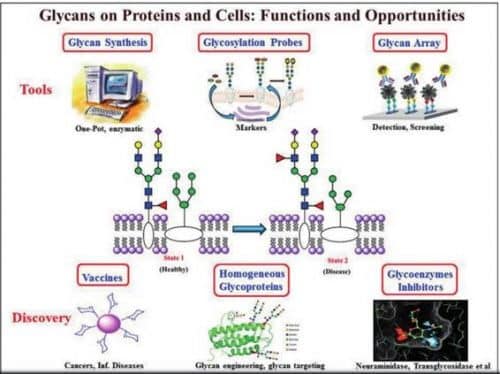The lecture by Prof. Chi-Wei Wong, one of the most prominent chemists in the world, will be held on Monday, March 14, at 19:30 PM at the Academy of Sciences in Jerusalem

The annual lecture named after Albert Einstein of the Israel National Academy of Sciences will this year host Prof. Chi-Huey Wong, professor of chemistry and president of "Academia Sinica" in Taiwan, who will lecture on "Sugar residues: a basic understanding for problem solving". The lecture is in English and is open to the general public.
Prof. Wong is a member of the American Academy of Sciences and a Wolf Prize laureate, and his research has won him many prestigious awards and placed him as one of the most prominent chemists in the world, with hundreds of articles and dozens of patents registered to his name.
Prof. Wong began his research on glycosylation (adding sugar residues to a biological molecule) in an attempt to understand how the various sugar structures are assembled and formed in nature and what their functions are. In his opinion, the relatively slow progress in research in this field in the past was due to the lack of suitable research tools and methods, so at the beginning of his career he devoted a lot of time to developing tools and methods for synthesizing sugars and connecting sugar residues to proteins. Prof. Wong developed several research methods in this field (Glycan Synthesis, Glycosylation Probes, Glycan array - see the picture below), and they allowed him to investigate the functions of those sugar residues.
Prof. Wong's research dealt with the effect of the sugar residue on protein folding, identifying a different pattern of sugar residues in cancer cells or cells infected with the disease, the effect of the sugar residues on the immune response and understanding the transition of the biological signals associated with the sugar residues. Understanding the biological role of the sugar residues led to the development of vaccines against cancer based on sugar residues, to the discovery of new diagnostic methods for cancerous tumors through the use of glycan arrays, to the preparation of homogeneous glycated proteins with defined glycan structures for medicinal use, and to the development of enzyme activity inhibitors related to the sugar residue mechanism for use medical.
The president of the Israel National Academy of Sciences, Prof. Neely Cohen, said that the hosting of Prof. Chi-Wei Wong is part of a close, fruitful and prosperous cooperation between Israeli researchers and scientists and between researchers and scientists from around the world. According to her, there is great importance in the cultivation, deepening and expansion of research in the field. Science is a bridging international language, and it is based on cooperation between researchers. The Academy considers the cultivation of Israel's scientific foreign relations among the most important of its duties.
The Israel National Academy of Sciences is the highest body in the scientific community in Israel. It was founded by law in 1961 with the aim of bringing together the best scientists in Israel, fostering and promoting scientific activity in the country, and advising Israeli governments regarding research and scientific planning of national importance.
